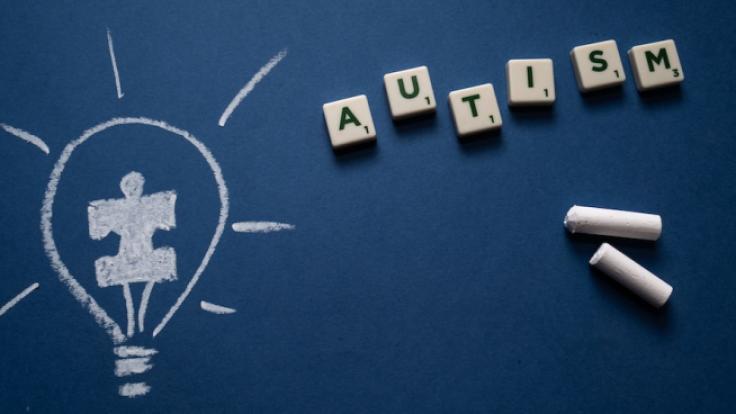According to the National Institute of Mental Health, one in five adults in the United States has some form of mental health disorder affecting their lives. Many of them cannot work and earn money to support themselves or their families because of the effects of mental illness.
The Social Security Administration pays disability benefits to millions of people through the Social Security Disability Insurance and Supplemental Security Income programs. However, successfully making it through the disability review process to be approved for benefits is not easy. The SSA denies more than two-thirds of disability claims each year.
The disability lawyers at the Clauson Law Firm understand the challenges you face when applying for disability mental health, so they’re committed to simplifying things for you. This guide to the disability application for mental health explains the process used by the SSA to evaluate applications to determine whether they meet the SSI and SSDI mental health requirements and what needs to go into a disability application for mental health.
SSDI And SSI Mental Health Criteria – Financial Requirements
Whether applying for mental illness disability benefits through SSDI or SSI, you first must meet financial or non-medical requirements. You must have a history of working at jobs or through self-employment with payment of Social Security taxes on your earned income.
The work record must be of a sufficiently long duration and recent enough to qualify for SSDI benefits. People generally need to work at least five of the last 10 years to be eligible for benefits through SSDI.
The non-medical requirements for SSI are very different from those of SSDI. SSI is a program with eligibility based on need, so a work record is not a condition to qualify for mental health disability benefits. Instead, you must have no income or limited income, and your assets or resources cannot exceed $2,000 in value for an individual or $3,000 for couples.
Something to remember about SSI financial requirements is that only some sources of income count toward determining if you are eligible. For example, the first $65 per month and one-half of the remaining balance of earned income does not count as income. A Clauson Law disability lawyer helps by knowing the eligibility requirements and ensuring the accuracy of what you include on your application.
Medical Criteria To Qualify For Mental Health Disability Benefits
Applicants for SSDI and adults applying for SSI disability benefits must be unable to do substantial gainful activity because of a medically determinable physical or mental impairment expected to last for at least 12 months or be expected to cause death. In other words, your mental health disability claim will be denied if you are only partially disabled or expected to recover and shortly return to work.
The Disability Determination Process
Mental health disability claims are initially processed at Social Security field offices where it’s determined if the application meets the non-medical eligibility requirements for SSDI or SSI. If a claimant works and has monthly earnings exceeding $1,550 in 2024, they can do substantial gainful activity and are not disabled.
If a person is not working or cannot do substantial gainful activity, the application is sent to a federally funded state agency, the Disability Determination Services, that decides if the claimant is disabled and eligible for disability benefits. The DDS evaluation process includes the following steps:
- Is The Claimant’s Condition Severe? The medical and other documentation must prove an impairment that limits a person’s ability to do work activities, and it’s expected to last for more than 12 months. If severe and expected to last more than a year, the evaluation continues to the next step.
- Does The Mental Health Impairment Meet Or Equal A Listing? The SSA created a listing of impairments or Blue Book for use by DDS examiners to evaluate physical or mental conditions. The medical evidence must prove a mental health disorder meets or is functionally equivalent to a listed impairment by meeting or equaling the requirements of a listed impairment. Meeting or medically equaling a listing is sufficient to be approved for benefits. However, there is another step in the process for applicants who do not qualify under a listing.
- Can The Claimant Do Work Done In The Past? The DDS uses a person’s residual functional capacity or RFC to determine whether they can do work done in the past. RFC determines the work activities a person is capable of doing, given the limitations caused by symptoms of their mental disorder. If a person cannot do the work they did in the past, the process moves to the next step.
- Can A Person Do Other Forms Of Work? Using RFC and a person’s education, age, experience, and other factors, the DDS decides if they can adapt to do other work available in the national economy.
If your application gets to the final step and you cannot adapt to other available forms of work, your application will be approved.
Meeting the criteria for a mental health impairment listing establishes that you have a disabling condition. The listing of impairments has 11 sections of mental health disorders:
- Section 12.02 Neurocognitive disorders
- Section 12.03 Schizophrenia spectrum and other psychotic disorders
- Section 12.04 Depressive, bipolar, and related disorders
- Section 12.05 Intellectual disorder
- Section 12.06 Anxiety and obsessive-compulsive disorders
- Section 12.07 Somatic symptom and related disorders
- Section 12.08 Personality and impulse-control disorders
- Section 12.10 Autism spectrum disorder
- Section 12.11 Neurodevelopmental disorders
- Section 12.13 Eating disorders
- Section 12.15 Trauma- and stressor-related disorders
If you suspect that you may have a mental health disorder, you must get proper care from a medical practitioner capable of diagnosing and treating your condition.
Filing A Disability Application For Mental Health
A mental health SSDI application can be submitted online at the SSA website or by scheduling an appointment at a local SSA office. The online process is not available to file a mental health SSI application. If applying for SSI benefits, you need to contact a local SSA office to make an appointment.
Documents you may be asked to provide or refer to when completing an application for benefits include:
- Birth certificate or other proof of birth, such as baptism certificate.
- Evidence of U.S. citizenship or lawful alien status.
- W-2 records or federal tax returns for the past year.
- Medical records in your possession.
- Adult Disability Report.
An Adult Disability Report contains information about your disabling mental health condition. The SSA Disability Determination Services, a state agency that determines if you are disabled according to federal guidelines, uses the form to decide your mental health disability claim.
The information you furnish in an Adult Disability Report is crucial to the success of your disability application for mental health benefits. There is too much at stake, so it’s wise to have assistance from the disability professionals at Clauson Law when filling out the Adult Disability Report.
Documents That Make A Disability Application For Mental Health Stronger
Being approved for disability benefits with a mental illness is not easy without medical records and other mental health disability documentation. The evidence should include the following:
- Medical records containing a specific diagnosis, preferably from a psychiatrist or psychologist.
- If the mental health disorder is attributable to organic abnormalities or causes, the medical records should include copies of brain scans and other tests confirming them.
- Records documenting treatment, including prescribed medications and therapy, including notes about the effects of treatment on your condition.
- Documentation of episodes of symptoms that can include a diary or journal that you used to record them or notes in your medical records indicating that you reported the episodes.
Statements from friends, family, employers, and entries you make in a journal or diary can document how symptoms of the mental disorder affect your ability to do activities of daily living. Your disability lawyer can use an inability to do everyday activities outside of the workplace as evidence that they also affect your ability to do work activities.
What Can You Do When A Mental Health Disability Claim Is Denied?
The denial of a mental health disability claim can be challenged through an appeal. The appeal process includes the following stages:
- Request For Reconsideration: Your claim is reevaluated by examiners who were not involved in making the original decision.
- Request A Hearing: If the reconsideration does not result in a favorable decision, you can request a hearing. An administrative law judge reviews the claim and any additional evidence your disability lawyer submits.
- Request An Appeals Council Review: An Appeals Council has the authority to deny the request, reverse the judge’s decision, or refer the claim to an administrative law judge for further action.
- File For A Federal District Court Review: An adverse decision from the Appeals Council may be appealed by filing a court action asking for review by a United States District Court judge.
You may not need to go through each stage to win a mental health disability claim.
Contact Clauson Law To Learn More About Mental Health Disability Claims
The Clauson Law Firm helps people in North Carolina and throughout the country with mental health disability claims and other matters related to disability benefits. Learn how a disability lawyer from Clauson Law can make a difference for you by contacting us today for a free consultation and claim evaluation.


